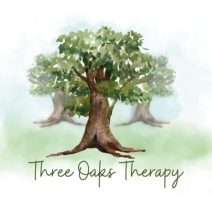Anxiety is a common experience that affects many individuals in different ways. While occasional feelings of anxiety are normal, an understanding of how the nervous system functions can shed light on why anxiety can sometimes become overwhelming and debilitating. In this blog, we explore the connection between anxiety and the dysregulation of the nervous system, and how seeking support from Three Oaks Therapy can provide the tools and guidance needed for healing and relief.
The Nervous System and Anxiety
The nervous system plays a pivotal role in regulating our physiological responses, including our experience of anxiety. It consists of two key branches: the sympathetic nervous system (SNS) and the parasympathetic nervous system (PNS). The SNS triggers the "fight-or-flight" response, activating the body for perceived threats, while the PNS promotes a state of rest, relaxation, and restoration.
Dysregulation and Anxiety
When the nervous system becomes dysregulated, anxiety can intensify and persist beyond what is necessary for self-protection. Here's what happens when the nervous system is dysregulated:
Hyperarousal: Excessive activation of the sympathetic nervous system (SNS) can have a profound impact on various aspects of your life. This heightened state of arousal can lead to persistent feelings of anxiety and can manifest as generalised anxiety disorder or panic attacks. Your heightened alertness may make it difficult to relax or concentrate, impacting your ability to focus on tasks or enjoy leisure activities. Racing thoughts can overwhelm your mind, making it challenging to find peace and quiet within yourself. Rapid heartbeat and increased muscle tension can cause physical discomfort and restlessness, affecting your sleep patterns and overall well-being.
Hypoarousal: When the parasympathetic nervous system (PNS) becomes dysregulated, resulting in hypoarousal, your ability to activate the body's relaxation response is impaired. This state can leave you feeling detached from your surroundings, as if you are watching life unfold from a distance. Numbness and emotional blunting may accompany this feeling of detachment, making it challenging to fully engage in meaningful connections and experiences. The constant sense of being on edge can lead to heightened sensitivity to potential threats or triggers, making it difficult to trust and relax in social or personal relationships.
Emotional Regulation Challenges: Dysregulation of the nervous system can significantly impact your ability to regulate and manage your emotions effectively. Intense and overwhelming emotions may become a frequent occurrence, making it challenging to maintain emotional stability. You might find yourself experiencing mood swings, feeling on an emotional roller coaster, or struggling to find a sense of inner calm. This can affect your personal relationships, as well as your ability to perform well at work or engage in daily activities with a sense of ease and stability.
Anxiety can significantly impact our mental, emotional, and physical well-being. By recognising the connection between anxiety and the dysregulation of the nervous system, we can begin to address its root causes and seek appropriate support. Three Oaks Therapy offers a range of therapeutic interventions and evidence-based techniques to help individuals navigate anxiety and find lasting relief.
Take the first step towards a calmer, more balanced life by contacting Three Oaks Therapy today. Your journey to healing and well-being begins here.
